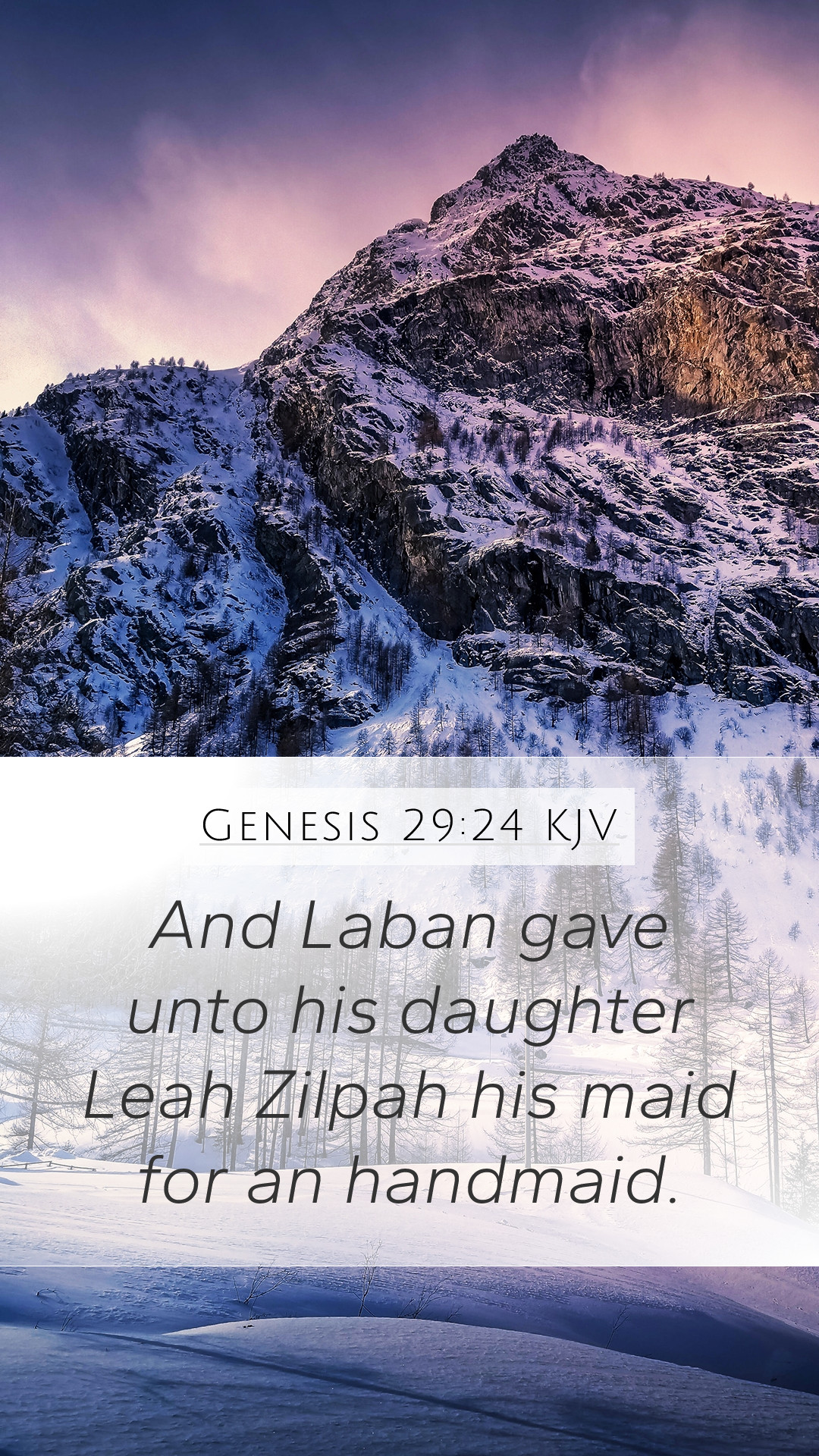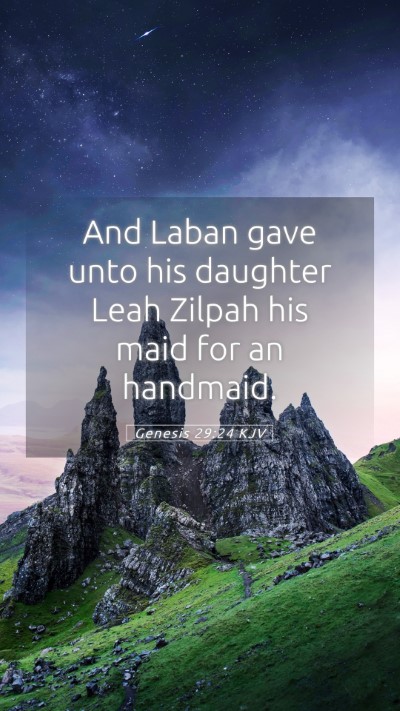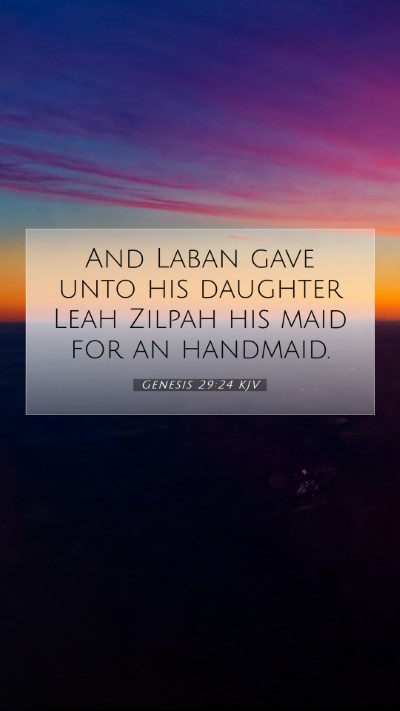Understanding Genesis 29:24
Genesis 29:24 states: "And Laban gave unto his daughter Leah Zilpah his maid for an handmaid." This verse is significant in the narrative of Jacob, Leah, and Rachel, where the dynamics of family, marriage, and servitude intertwine.
Bible Verse Meanings and Commentary
This verse highlights several critical themes and motifs present in the text. The following insights aggregate the interpretations of esteemed commentators:
- Matthew Henry: Henry emphasizes that Laban’s act of giving Zilpah, a maid, to Leah as a handmaid symbolizes the cultural practices of the time where women often had handmaids or servants. This reflects the societal norms regarding marriage and the role of women within the family unit.
- Albert Barnes: Barnes comments on the significance of Leah being given a maid, Zilpah. It signifies that Leah, though not as favored as Rachel, is nonetheless provided with the means to bear children, indicating the competition between the sisters for Jacob's affection. This provision also illustrates the complicated family dynamics and the influence of custom in their relationships.
- Adam Clarke: Clarke analyzes the text by highlighting that Zilpah's presence illustrates the overlap of domestic roles in their society, serving as a reminder of the hardships women faced and the practices they adopted to fulfill family and social expectations. Clarke notes that this was not just a gift but a necessity for Leah amidst the rivalry with her sister.
Scripture Analysis
The verse invites a deeper exploration into the themes of:
- Family Dynamics: The relationships among Jacob, Leah, and Rachel showcase the complexity of marital bonds and the emotional toll of favoritism.
- Women's Roles: It highlights the status of women in Biblical times and their reliance on maidservants for support and childbearing, which speaks volumes about their societal positions.
- Competition for Affection: Leah’s acquisition of Zilpah indicates a deeper rivalry with Rachel, highlighting the lengths they would go to secure Jacob's love, which serves as an emotional backdrop for the unfolding narrative.
Understanding Scripture and Its Historical Context
The historical context surrounding Genesis 29 is vital for grasping its significance:
- Jacob, having fled from Esau, comes to Laban’s household, where he encounters Leah and Rachel. The culture of Bethel is steeped in practices of polygamy and the use of handmaids, a common practice for women seeking to increase their family size.
- Laban, as a cunning figure, manipulates situations to his advantage, showcasing the undercurrents of deceit and moral ambiguity that permeate Genesis.
- The dynamics established in this chapter set the stage for the ensuing drama involving Jacob's relationships and the birth of the tribes of Israel.
Application of Genesis 29:24 in Daily Life
For modern readers, the implications of this verse can be transformative:
- Family Relationships: It underscores the importance of understanding and empathy in familial relationships, especially amidst rivalry and competition.
- Role of Women: Reflecting on the text provides insights into the evolving role of women in society and can encourage discussions about equality and respect.
- Complex Interactions: It serves as a reminder that family dynamics are often complicated, and navigating them requires patience and understanding, echoing the lessons from Jacob's story.
Cross References
This verse connects well with several others that explore similar themes:
- Genesis 30:9-13 - The continuation of the rivalry between Leah and Rachel through the introduction of Zilpah and Bilhah.
- Genesis 29:16-20 - This passage provides insight into Jacob’s initial relationship with Leah and Rachel.
- Genesis 31:14-16 - Leah and Rachel's dialogue about their inheritance and the implications of their father's actions.
Conclusion
Genesis 29:24 offers rich layers of meaning that echo through biblical interpretations and modern-day applications. By engaging with the scripture through various commentaries, individuals gain a comprehensive understanding of its implications on family dynamics, societal norms, and personal relationships.
As we navigate our own family relationships and societal roles, the stories found within the Bible remind us of the complexities of human emotion and the enduring significance of understanding both historical and contemporary contexts in our lives.


